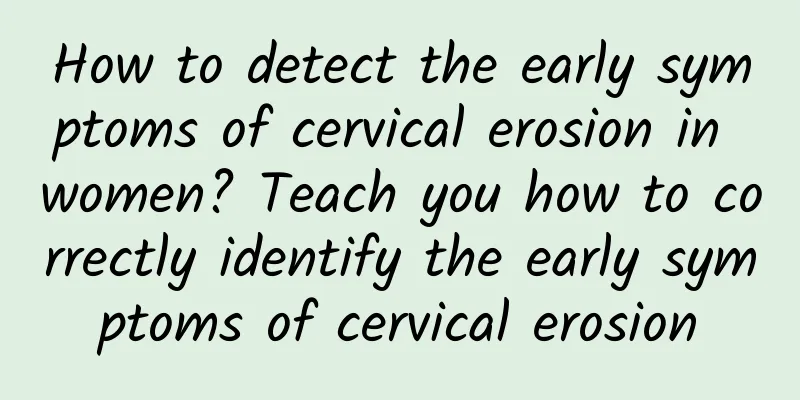What should I do if I get pregnant again one month after a miscarriage?

|
What should I do if I get pregnant again one month after a miscarriage? After an abortion, women should actively take contraceptive measures, because ovulation may occur within one month after the abortion, and if contraception is not used, pregnancy may occur again. You don't need to be too nervous after getting pregnant again, but you should have a detailed examination as soon as possible to determine whether it is an intrauterine pregnancy and the growth and development of the gestational sac, and then decide on the treatment method based on the actual situation. What should I do if I get pregnant again one month after a miscarriage? 1. If you get pregnant again one month after a miscarriage, and the test results are normal and you have the desire to have children, you can continue the pregnancy. You should pay attention to rest, avoid having sex, adjust your mental state, supplement your nutrition properly, and exercise your body appropriately. At the same time, take folic acid under the guidance of a doctor to promote the development of fetal neurovascular tissue and prevent neurovascular malformations. Generally speaking, you can stop taking folic acid after three months of pregnancy. Usually, you just need to eat more foods containing folic acid and other nutrients. 2. If the test results are abnormal or you do not want to continue the pregnancy, it is recommended to arrange an appropriate time for medical abortion according to the doctor's advice. Relatively speaking, when you get pregnant again one month after an abortion, medical abortion is safer, because artificial abortion can cause endometrial damage and it takes a certain amount of time to recover. If an artificial abortion is performed again in a short period of time, it may cause serious consequences such as uterine perforation and heavy bleeding. It is generally believed that 5 to 7 weeks of pregnancy is the best time for medical abortion. A total of 3 days of oral medication are required. It is recommended to start taking it after hospitalization, especially on the third day, you should pay close attention to your condition. The uterus will expel the pregnancy tissue after about 2-6 hours. If the pregnancy tissue is not expelled after 6 hours, you can cooperate with the doctor to repeat the medication. If heavy vaginal bleeding is found during the observation process, you should contact the doctor in time and perform a uterine curettage if necessary. |
<<: What tests are needed for habitual miscarriage?
>>: Is it possible to detect adenomyosis by B-ultrasound?
Recommend
Treatment of abnormal leucorrhea in traditional Chinese medicine
The TCM treatment of abnormal leucorrhea usually ...
Walking is the best aerobic exercise! Learn to walk with your hip joints to double your fat burning
Want to lose weight and burn fat effectively, but...
Rapid weight loss is not a good thing. There are 4 major side effects.
"Becoming fat" is the result of bad eat...
What is intrauterine fluid?
There are physiological and pathological differen...
Is it okay to take progesterone if menstruation has not come? Go to the hospital for a check-up first
Many women experience amenorrhea due to various r...
Okra green tea is becoming popular for weight loss, lowering blood sugar and reducing edema? Hot brew or cold brew, which one is better? Nutritionist answers...
When you go to a revolving sushi restaurant, you ...
What should pregnant women do if they have uterine fibroids? Can you still give birth if you have uterine fibroids during pregnancy?
Pregnancy is a happy thing in a woman's life,...
Can I take cold medicine if I catch a cold after an abortion? I must eat like this after an abortion.
Although abortion is only a minor operation, the ...
Symptoms of pelvic inflammatory disease may also include systemic symptoms
Recently, there are more and more patients with p...
Eating like this while exercising to lose weight will make you thinner the more you eat! Nutritionist: Fruits and vegetables on the blue plate are the key
Eating the right food can not only make you healt...
How long does it take to have a medical abortion? Here is the answer
Abortion is divided into medical abortion, natura...
How to prevent menopause
What are the prevention methods of menopause? Wom...
Can gynecological disease cervical erosion be cured?
Can gynecological cervical erosion be cured? Expe...
What are the symptoms of chronic adnexitis?
Chronic adnexitis is a type of adnexitis, and man...
Long-term constipation leads to obesity? Improve intestinal prolapse first, do 3 intestinal stretching exercises
Are you always suffering from constipation and ca...









